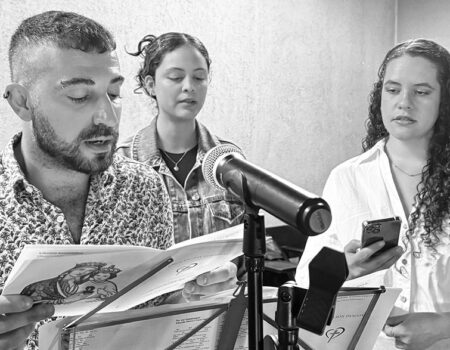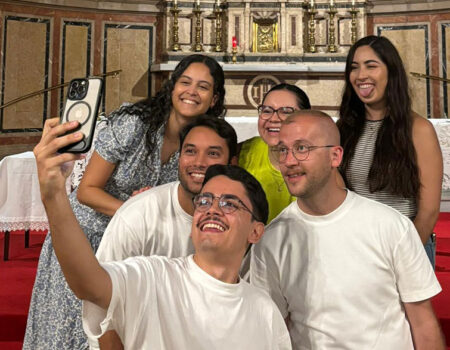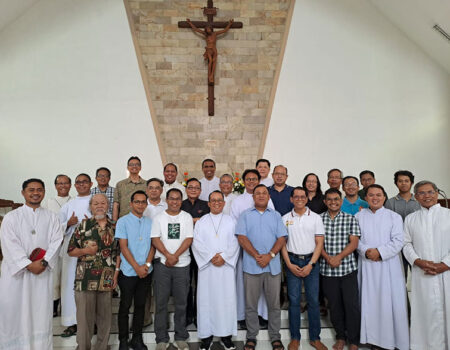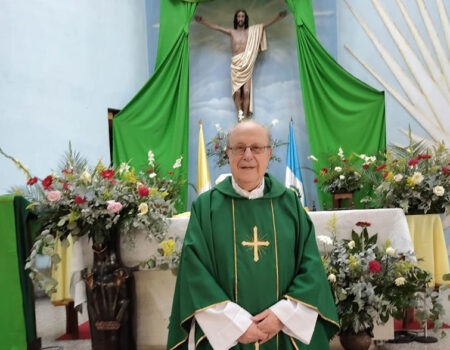The experience of a global Church
Wednesday April 24, 2024
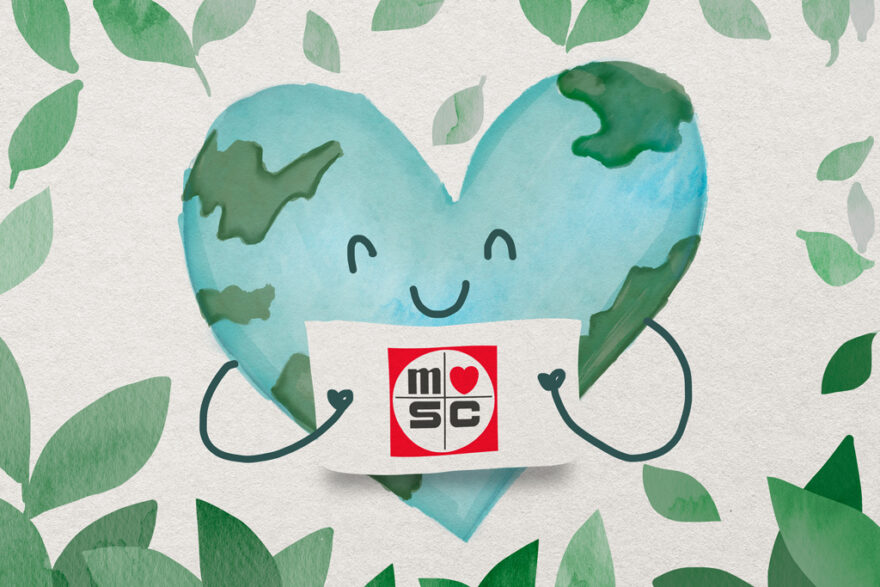
André Claessens, msc.
Very pronounced internationalisation.
The 2017 General Chapter was an exceptional experience for me compared to all the other Chapters since the 1980s. Over the decades, I have been able to experience the transformation that has taken place in our Congregation. Whereas in the 1983 chapter, the assembly was still primarily made up of European, Australian or North American representatives, the 2017 Chapter was very colourful, with a large majority of confreres from the southern hemisphere. This highly international and intercultural composition is an evident reflection of the changes that have taken place in the Catholic Church since the Second Vatican Council and the demographic changes that have occurred, especially on the old continent of Europe. All the congregations and religious orders are experiencing these changes and bear witness to this universality, which has become very evident in our Chapters and General Conferences. The proceedings of these assemblies also contain more and more reflections on the internationality and interculturality that mark the life of the confreres in the entities. The “Chevalier Family” idea has also been expressed even more. In this respect, our last Chapter in 2023 in Nemi was an extraordinary experience because, for the very first time, delegations of observers from the Daughters of Our Lady of the Sacred Heart, the MSC Sisters and lay members of the Chevalier Family were invited and took an active part in our discussions. During the Chapter of 2017, Fr Abzalón asked me to serve as General Councillor. I had just finished 12 years as Provincial in Belgium. A new challenge awaited me.
A new world. If globalisation and belonging to a worldwide congregation had interested me for a long time, now I would experience it like never before. The world was indeed going to become my village. A member of the General Council is not only responsible for the geographical area assigned to him, but the whole congregation must be of concern to him. He is no longer the representative of ‘his country’ or ‘his continent’, but, together with the team, he is a servant of the whole congregation. At Council meetings, you see the congregation “parade” in all its rich diversity, with its formidable achievements and weaknesses, and the confreres with their joys and sorrows. There is a lot of discernment to be done, and each team member contributes his or her own. Together, we look for the best way to move a situation forward and create or facilitate opportunities for growth for the confreres concerned. The most comforting meetings are those where we can approve professions, ordinations and new initiatives to develop the mission; the most difficult are those where complex issues are put on the table, such as expulsions of the Society, requests for exclaustration, the accompaniment of crises situations, etc.
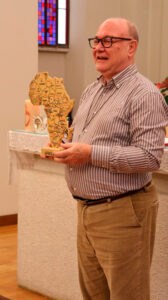
Africa and Europe. I was entrusted explicitly with supporting the entities in Africa and Europe. While we are confronted with the ageing process and its many well-known consequences in Europe, staying among the confreres in Africa is like a breath of fresh air. It’s an experience of vitality and a search for how best to accomplish the mission in a continent where the Church and religious life face many challenges. The Union of French-speaking Africa (Congo, Cameroon, Senegal) and the mission in South Africa and Mozambique were entrusted to my care. Accompanying the UAF was the most intensive. I also had the joy of learning about the life of the MSCs at the Chapters in Australia and Canada and at the APIA formators’ meeting in Fiji.
As for the eight provinces of Europe, listening to our older brothers, I was always struck and edified by their missionary commitment to the missions of the South and their countries of origin. The psalmist’s phrase often came to mind: “He is still bearing fruit in his old age …”. What a testimony for us youngsters! In many places, I was struck by the dedication of many lay people who desire to share our spirituality in the Chevalier Family. This is undoubtedly a great fruit of the renewal and rediscovery of the intuitions and desires of our Founder.
Peace, Justice, Integrity of Creation (JPIC). Apart from their territorial responsibilities, each team member has a specific portfolio. For me, JPIC has been a passion for a long time. Since the 2017 chapter, we have tried to make progress in this area as a “Chevalier Family”. Of course, each entity chooses its actions according to the priorities dictated by the situation on the ground. But since 2015, Pope Francis has invited humanity, in his encyclical Laudato Si, to combat climate change and take greater care of our common home, the earth. We have promoted this through the action/prayer on the first Friday of the month, which has always been dear to our congregations. We are not alone; what we do together, we do better! We are also committed to the 7-year plan developed by the World Movement Laudato Si. Entities that have yet to become involved are invited not to stand by and watch. The Pope says that action is urgently needed, and everyone must get involved. It’s not just ecological conversion and climate change that need to be tackled, but other injustices and violations of human rights are also on the spot. It is justice that creates lasting peace!
_
For me, JPIC has been a passion for a long time. Since the 2017 chapter, we have tried to make progress in this area as a “Chevalier Family”.
Despite COVID, these six years at the Generalate and in the world were a great challenge and a considerable personal enrichment. Not all projects came to fruition. I have seen the vitality of our Congregation, especially in the southern hemisphere. Organising North-South solidarity and involving more confreres in the Commitment for a Better World (JPIC) is challenging for our mission under the aegis of the Spirit and the new General Administration. I remain convinced that the promotion of international collaboration and the formation of intercultural communities is the emerging future that will enable our mission to progress “ubique terrarum”. Our world is changing at a dizzying pace, with a widening gap between the rich countries and the countries of the South that are suffering most from climate change. The challenges and responsibilities for our communities are enormous if we are to fulfil our prophetic vocation in a synodal Church. Avanti!


